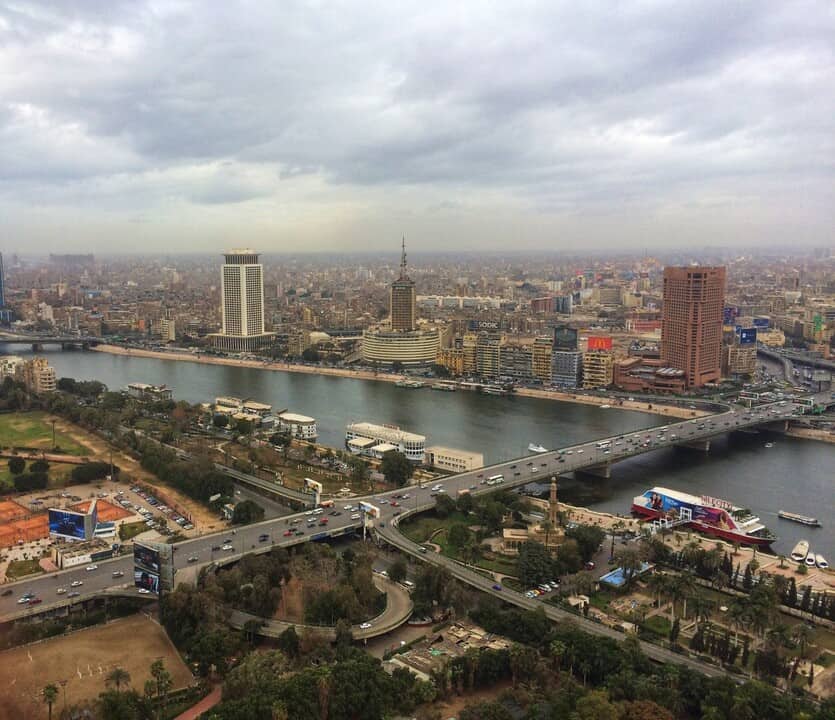
Middle East Connect & Cultural Advisors would like to invite you on our very special educational journey around the GCC and the MENA region
This is second in a series. This trip is to the land of the Pharaohs…
Like many of its neighbours in the Middle East and North Africa (MENA) region, Egypt retains a very traditional, Arabic approach to business culture. It is heavily influence by Islam, family ties, loyalty, modesty, and pride. Group hierarchy and deference to seniority is valued but there is also a very personal side to doing business in Egypt, which is in line with many other Arabic nations.
For many of us, all we know about Egypt is that it’s home to the pyramids, the river Nile, the Pharaohs and Cleopatra. What you need to know if you’re considering doing business in Egypt begins with the facts, like the import market is worth about USD$60 billion a year; the population is close to 105 million and the country is 90 percent Sunni Muslim.
Egypt is a highly urbanised nation with about 43 percent of Egyptians living in cities. It is also a nation rich in natural resources, such as petroleum, natural gas, iron ore, phosphates, manganese, zinc and rare earth elements.
In short, Egypt has a growing middle class that is eager to enjoy lifestyle comforts, many of which are imported. It has a strong economy with a GDP of about USD$1.1 trillion. However, Egypt has also had its share of economic woes in recent years. Inflation was at 29 percent in 2017 and in 2020 was hovering around 9 percent.
Since 2018 the government—led by President Abdelfattah El Sisi and prime minister Mostafa Madbouly—has implemented what the World Bank has referred to as ‘significant’ business reforms to support investment and streamline regulation.
The key reforms are summarised in the following:
- starting a business was made easier by removing the requirement to obtain a bank certificate and establishing a one-stop shop, reducing the time to start a business to 11 days now, from 16 days earlier;
- access to credit was made easier by strengthening the rights of borrowers and lenders with regards to collateral;
- the rights of minority investors were strengthened by increasing corporate transparency;
- tax improvements were also made by extending value added tax cash refunds to manufacturers for new capital investment;
- resolving insolvency was made easier by introducing the reorganization procedure, allowing debtors to initiate the reorganization procedure, and granting creditors greater participation in the proceedings. (Source: World Bank)
By 2020, Egypt had climbed six places in the global ‘Doing Business’ index reflecting the positive impact of a restructuring program agreed with the IMF in 2016 aimed at maintaining economic stability and promoting long-term growth. (Source: Egypt Independent)
Egypt today
While the official language of Egypt today is Arabic, English and French are widely understood and spoken among educated Egyptians. This can make business conversations much easier for foreigners. Egypt is the most populous country in the Arab world and has had rapid population growth in the last 30 years.
Interestingly, Egypt has a hybrid legal system with elements of the Napoleonic Code, Islamic law and some post-colonial hangovers. For this reason, it is wise to engage local legal representation when considering a business venture in Egypt. The World Bank ‘ease of business’ indexing system provides useful background information on some of the issues a new business faces in Egypt; everything from set up to paying taxes, dealing with contracts, and cross-border trade.
Business Culture in Egypt
Like many of its neighbours in the Middle East and North Africa (MENA) region, Egypt retains a very traditional, Arabic approach to business culture. It is heavily influence by Islam, family ties, loyalty, modesty, and pride. Group hierarchy and deference to seniority is valued but there is also a very personal side to doing business in Egypt, which is in line with many other Arabic nations.
Personal contact is important but so too is a level of formality—for example, making first contact via email, followed with a phone call. Having a local agent to make initial inquiries and to act as a go-between is encouraged. When attending business meetings, it is perfectly normal to make general personal inquiries about a person’s health or family. However, it is best to avoid any discussion of politics.
Remember that time management and punctuality are important, but so too is respect for the Islamic calendar and important prayer times during the day. No business is conducted on major festival days—such as at the end of the holy month of Ramadan, or the Hajj—so check the calendar. Religious observance is important, and this spills over into dress code (conservative) and the same applies around food and drink. Egypt is a bit more liberal than some Arab nations when it comes food and alcohol, so it is always best to check before settling on a menu.
When making a business presentation make sure that it is well-researched, be direct (but not too direct) and expect interruptions during meetings as this is considered normal. It also means meetings can take longer than you might expect. Be prepared to bargain as it is a way of life for many Egyptians.
It also pays to do a little homework about Egypt too; showing some interest in aspects of local life, history and culture is a good way to demonstrate good faith. Learning a few phrases of Arabic, particularly greetings and terms like “in sha Allah, bokra” (God willing, tomorrow) is also considered a sign of respect because nothing occurs without God’s blessing.
Previous posts
Doing business in the MENA region
If you are considering a business trip to Egypt, get in touch with Middle East Connect and Cultural Advisors (MECCA) for business or social travel advice and cultural awareness guidance.
